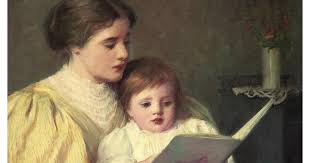Note: If you wish to receive, via e-mail, (1) my weekly newsletter or (2) daily copies of these posts, notify me at [email protected] and indicate which you would like. I promise not to share your e-mail address with anyone. To unsubscribe, send me a follow-up email.
Tuesday
I must be deliberately vague in this first paragraph as people I care about want me to keep the personal parts private. All I can say is that reading a beloved children’s story to an invalid can sometimes have restorative powers. I have first-hand knowledge that this is true.
There are two aspects to this. One is the book itself and one is the act of love involved in the reading. I’ve heard that music can touch patients who seem otherwise beyond our reach—we played Mozart’s Magic Flute to my mother in her final hours when she seemed oblivious to all around her—and I’m wondering if hearing the stories we cherished as children has a similar effect.
I suspect it would work on me because I have such deep recollections of my father reading to me and my three brothers throughout our childhood. We didn’t have a television, my parents figuring that stories and poems were much richer than anything appearing on “the boob tube.” After a sit-down family supper each evening, therefore, we settled down on the couch, getting a chapter each.
If it was a book we agreed on, that meant multiple chapters. Our books included The Hobbit, Lord of the Rings, Doctor Doolittle, The Jungle Books, Huckleberry Finn, E. Nesbit’s The Treasure Seekers, The Chronicles of Narnia, and on and on. Then, after we had brushed our teeth and gotten into bed, each of us also got a poem of his choosing. Our lives were saturated with literature.
I raised my children the same way (again, no television), sometimes with the same books, sometimes with new arrivals. For instance, while I of course read Tolkien and C.S. Lewis, we also ventured into Lloyd Alexander’s Taran series, Ursula K. Le Guin’s Earthsea series, and any number of Roald Dahl novels.
When we visit our grandchildren, reading aloud leads to instant bonding since my two sons have continued the practice. I’m so accustomed to reading to boys, however, that I’ve had to make an adjustment for my granddaughters, who have different tastes (although they too love Narnia).
I think when we are read to as adults, we return to a world where we felt safe, cared for, and loved. Those memories bolster and restore. As novelist and essayist Marilynne Robinson observes, “The broadest possible exercise of imagination is the thing most conducive to human health.”
I bring in Robinson because it’s her birthday today. In her essay collection When I Was a Child I Read Books, she talks about the power of joining the broader community of fictional characters:
I would say, for the moment, that community, at least community larger than the immediate family, consists very largely of imaginative love for people we do not know or whom we know very slightly. This thesis may be influenced by the fact that I have spent literal years of my life lovingly absorbed in the thoughts and perceptions of—who knows it better than I?—people who do not exist. And, just as writers are engrossed in the making of them, readers are profoundly moved and also influenced by the nonexistent, that great clan whose numbers increase prodigiously with every publishing season.
Robinson concludes, “I think fiction may be, whatever else, an exercise in the capacity for imaginative love, or sympathy, or identification.”
Here’s one last Robinson quotation about this community:
I love the writers of my thousand books. It pleases me to think how astonished old Homer, whoever he was, would be to find his epics on the shelf of such an unimaginable being as myself, in the middle of an unrumored continent. I love the large minority of the writers on my shelves who have struggled with words and thoughts and, by my lights, have lost the struggle. All together they are my community, the creators of the very idea of books, poetry, and extended narratives, and of the amazing human conversation that has taken place across the millennia, through weal and woe, over the heads of interest and utility.
Or as Emily Dickinson puts it, “There is no frigate like a book to take us lands away.”


